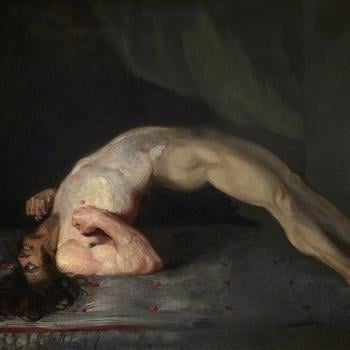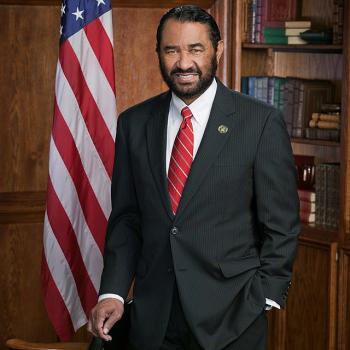 In an act of disregard for the health and welfare of young girls, the New York City school system is handing out morning-after pills to girls as young as 14, sometimes before the girls have even had sex.
In an act of disregard for the health and welfare of young girls, the New York City school system is handing out morning-after pills to girls as young as 14, sometimes before the girls have even had sex.
The morning after pill involves taking higher than normal doses of hormones, which, evidently, concerns almost no one, not even most of the girls’ parents. Parents in the NYC school system can sign an opt-out form for their daughters, but less than 2% have done so. I would imagine that part of the reason for this parental indifference is the way that “Plan B” has been pushed on our society. The risks associated with taking these hormones, especially when they are used as a form of birth control, are minimized or not discussed.
According to the Population Research Council:
At home and abroad, the abortion, family planning, and population control groups which seek to promote MAP ignore the scientifically-proven risks of levonorgestrel (the sole active ingredient of Plan B MAP). These well-documented adverse side effects include significant weight gain (on average 15 pounds), depression, ovarian cyst enlargement, gallbladder disease, high blood pressure, respiratory disorders,4increased risk of ectopic pregnancy5 and death. In some women, these serious adverse effects of levonorgestrel-type MAP could lead to further health risks for bulimia, anorexia, or clinical depression.
While these risks are multiplied with increased use, the advocates of MAP promote its increased, frequent, and repeated use. The makers of Plan-B, MAP suggest it “can be provided as frequently as needed,”6 as if it were candy or Tums. The wholesale promotion by the profiteers is undercut by solid evidence, and warnings advising women and physicians to limit usage, or to not use it at all.7 Norplant, the drug very similar to Plan B, was linked to severe medical problems which were never adequately studied or acknowledged by the FDA or the drug manufacturer (please see PRI’s Norplant information page, posted athttp://www.pop.org/main.cfm?
Also, the psychological pressure this puts young girls under to engage in sex is usually left out of the discussion. I have counseled young women in a crisis pregnancy center. I found that a lot of the young women were not engaging in sex because they enjoyed it. They said that they felt it was required of them. A lot of these girls seemed to have no idea that they could say “no.”
Plan B increases the pressure on young girls to engage in unwanted sex, since it gives boys the argument that they can always “get the morning after pill” from the school nurse. According to an article in the Sunday Times Magazine, quoted by ProLife Alliance:
A group of girls from a deprived area explained the morning after pill was just another way for men to force them into sex. The way these men see it, if there is no possibility of pregnancy, there is no reason for the woman not to have sex with them. One girl said “If you say you don’t want to have sex, they say ‘Give it up, don’t be silly, get down the clinic [to get the morning after pill].’” Another remarked that “boys push you into sex by saying you can take it the next day.” These women believed that the morning after pill had reinforced their sexual subjection, helping men to force them into sex and placing sole responsibility for the consequences onto their shoulders.
Even affluent young women from public schools, who did not feel forced into sex, were in a less empowered position as a result of the morning after pill. One said “It’s like it doesn’t matter how drunk you’ve been, or what happened”, because you can still take the morning after pill. Another noted that she had taken the morning after pill “after a one-night stand where I was so drunk I couldn’t remember the next day if we had used protection.” The morning after pill reassures them they can get so drunk they lose all memory without consequences. But the morning after pill only protects them from pregnancy. When they are that drunk, they are not empowered; they are often incapable of making sexual choices and open to sexual assault and other violence.
In addition to health risks from Plan B itself and the risk of being blackmailed into sex they don’t want, the morning after pill is an abortifacient. Like most of the other risks associated with this drug, the possibility of tricking a young girl into an abortion by schools who are pushing this drug on them does not seem to be addressed. In fact, the drug is touted as a panacea for avoiding abortion. According to a CNA article:
… the most recent study (2007) by Doctors Mikolajczyk and Stanford of the Department of Medicine in Public Health of the University of Bielefeld (Germany) clearly indicates that the pill’s “real effect” includes mechanisms that prevent implantation.
Published by the magazine Fertility and Sterility, the study used data from multiple clinical studies with advanced mathematical models and concluded that if emergency contraception only inhibited ovulation its true effectiveness would only be in a range of 8-49 percent. If it acted before ovulation and if it inhibited ovulation completely, its true effectiveness would be between 16-90 percent. The rest of the pill’s effectiveness consists in its anti-implantation mechanisms, which cause an abortion.
As usually happens in these so-called efforts at reducing teen pregnancy, the one person whose welfare is not considered is the girl, and the one person whose responsibility is not addressed is the boy. This pushing of a dangerous drug on young women at such a young age is, in my opinion, just the old sexual double standard, retro-fitted for today’s culture.
The article below discusses this in more detail.
NEW YORK (AP) — It’s a campaign believed to be unprecedented in its size and aggressiveness: New York City is dispensing the morning-after pill to girls as young as 14 at more than 50 public high schools, sometimes even before they have had sex.
The effort to combat teen pregnancy in the nation’s largest city contrasts sharply with the views of politicians and school systems in more conservative parts of the country.
Valerie Huber, president of the National Abstinence Education Association in Washington, calls it “a terrible case once again of bigotry of low expectations” — presuming that teen girls will have sex anyway, and effectively endorsing that.
But some doctors say more schools should follow New York’s lead …
… New York’s program was phased in at health clinics at about 40 schools in the 1-million-student school system starting about four years ago. Since January 2011, it has expanded to 13 additional schools that don’t have clinics. The little-known program was reported on Sunday by the New York Post.
Nurse practitioners or physicians dispense the pills, and parents can sign an opt-out form preventing their daughters from taking part. Only about 1 to 2 percent of parents have opted out, according to the city Health Department. (read more here.)












